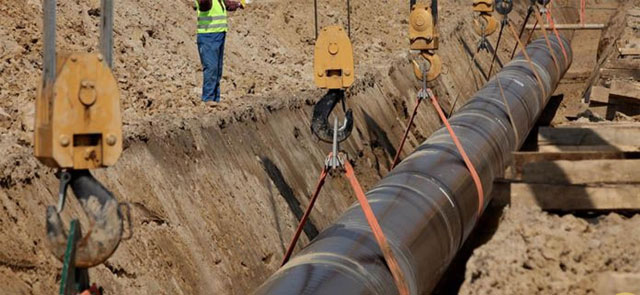
Kampala, Uganda | THE INDEPENDENT | European ambassadors to Uganda have voiced their cautious support to Uganda towards the development of the oil and gas sector.
The envoys say while Uganda has to get the resource out of the ground for its development, it should put the protection of the environment on top of the priorities.
This is also because Uganda has committed herself to the global transition towards renewable and clean energy, dubbed “the Just Transition”.
This comes amidst a ‘counter-offensive’ by Uganda against the campaign by the civil society, who were joined by the European Union parliament and some religious organisations, to call for the halt of the East African Crude Oil Pipeline, EACOP, and project.
The project, which the crusaders say will harm the ecosystem, climate and human rights in Uganda and Tanzania, is vital for the commercialization of the industry as the bulk of the oil is planned for export as crude through Tanzania.
Speaking at the Renewable Energy conference and Expo 2022, Jan Sadek, Head of European Union Delegation in Uganda, said to transition to renewable energy we need mechanisms that are not only ecofriendly but are good and sustain communities.
Sadek said Europe would continue to support Uganda renewable energy programs, adding that the country was entitled to use develop its oil but in an environmentally-cautious way. He said because of the nature of the energy sector, the EU will continue partnering with Uganda in its energy development needs.
Speaking at the ongoing Renewable Energy Conference in Kampala, Ambassador Sadek hailed Uganda’s energy plans that involves different sources of energy in the mix.
He said however, that the planned huge output of energy which will be supplemented by natural gas from the oil and gas industry, should be able to rhyme with the demand, otherwise it becomes costly to the economy and the environment.
On his part, the German Ambassador Matthias Schauer said that Uganda had a right to develop and use its oil, through protection of the environment was vital.
German government says it is fully committed to supporting increasing energy access in Uganda through use of renewables.
According to him, Europe has developed on fossil fuel for a great part of it and the protection of the environment generally, but unfortunately, it has not been a good example to developing countries like Uganda.
The envoy said the Russian war on Ukraine had boosted Europe’s transition to cleaner energy because Russia has been using the industry as a weapon of war, forcing a more speedy transition to alternatives energy sources.
His views on the development and utilization of its petroleum industry, were echoed by the Director of Programs at the Germany Development Corporation, GIZ, David Othieno.
According to him, Uganda and other developing countries needs support to develop their resources in a way that minimizes the effects on the environment.
Expert reports have shown that Africa contributed just about 3 percent of the global carbon emission but that it suffers the most from climate change, caused by the more developed and industrialized countries.
This therefore, according to them, makes the climate campaign unfair to Africa to tell it to move at the same pace with the other regions in the energy transition.
Norwegian Ambassador to Uganda, Elin Østebø Johansen, said to Africa, transition means migrating from charcoal (and firewood) to less destructive energy sources, which for now, includes petroleum. This, according to her is the easiest way for the continent to lift 600 million people from darkness.
However, the Dagnar Zwebe, the Chief Executive, Global Green Growth Institute in Uganda, said Africa and Uganda in particular can leap the stages that others have gone through.
She gave an example of the mobile phone industry that defied the stages of the communication revolution and, in some cases, Uganda developed faster than some European countries in the use of mobile phones According to her, the same can happen for energy.
******
URN
 The Independent Uganda: You get the Truth we Pay the Price
The Independent Uganda: You get the Truth we Pay the Price


